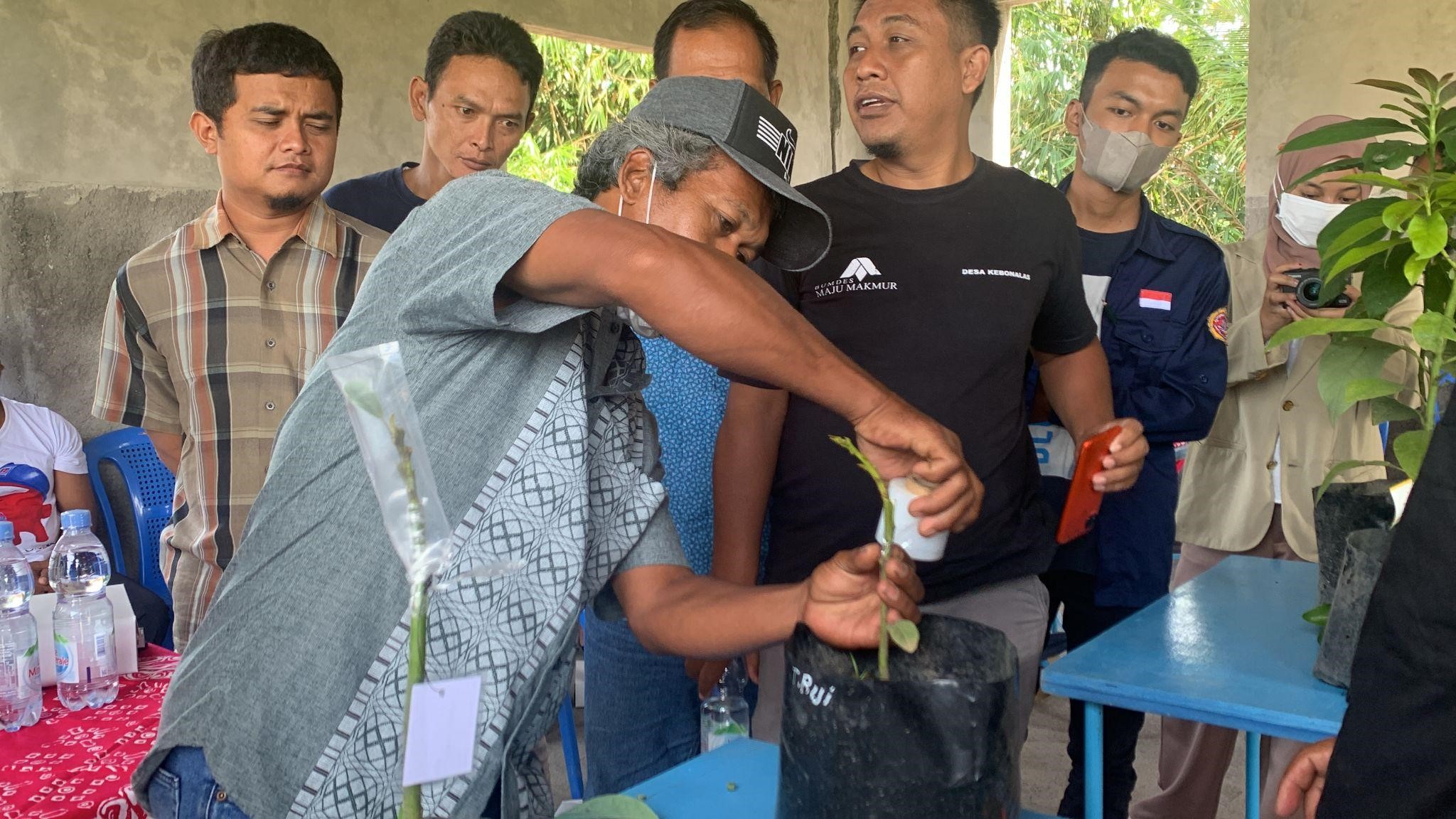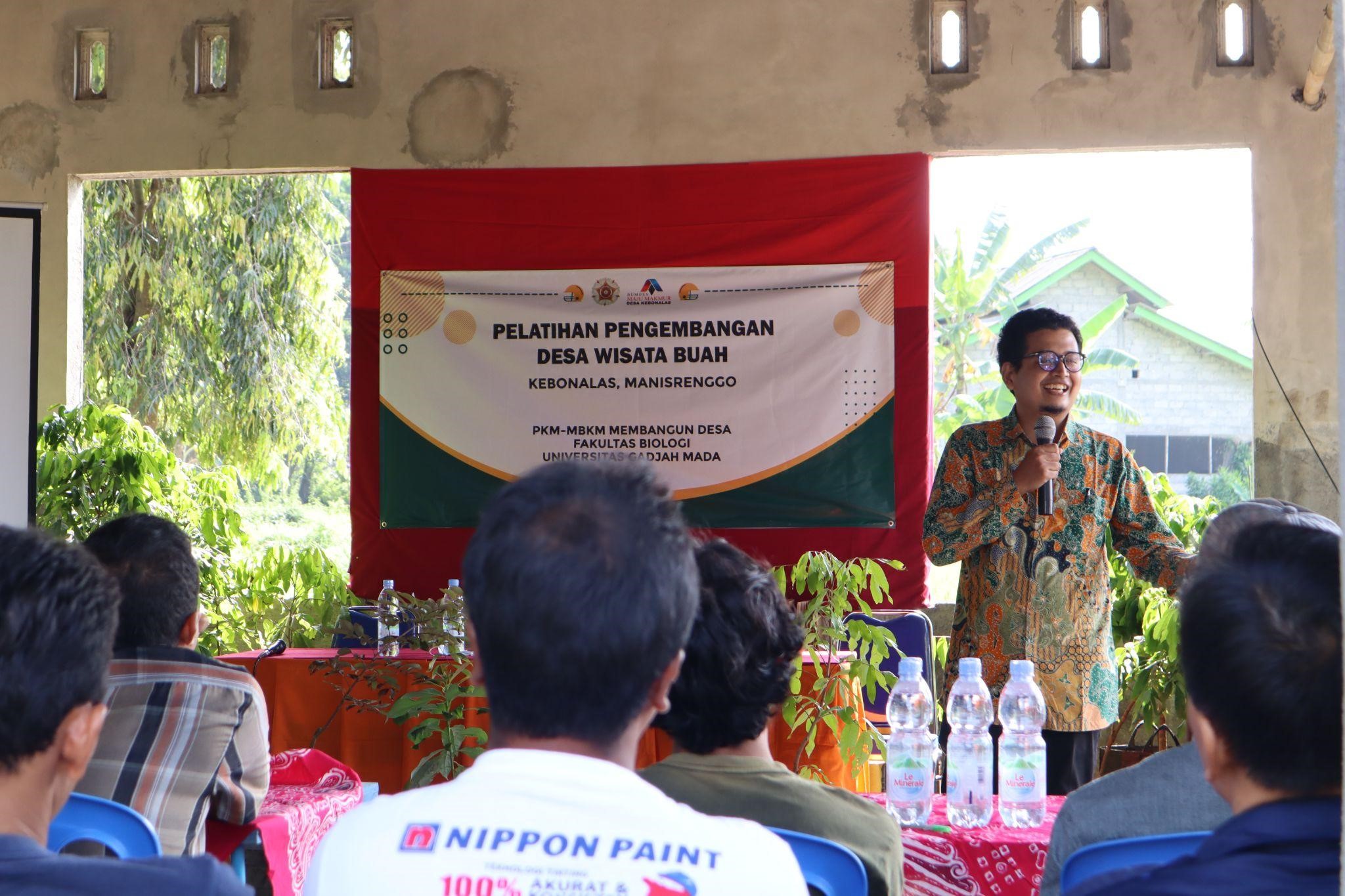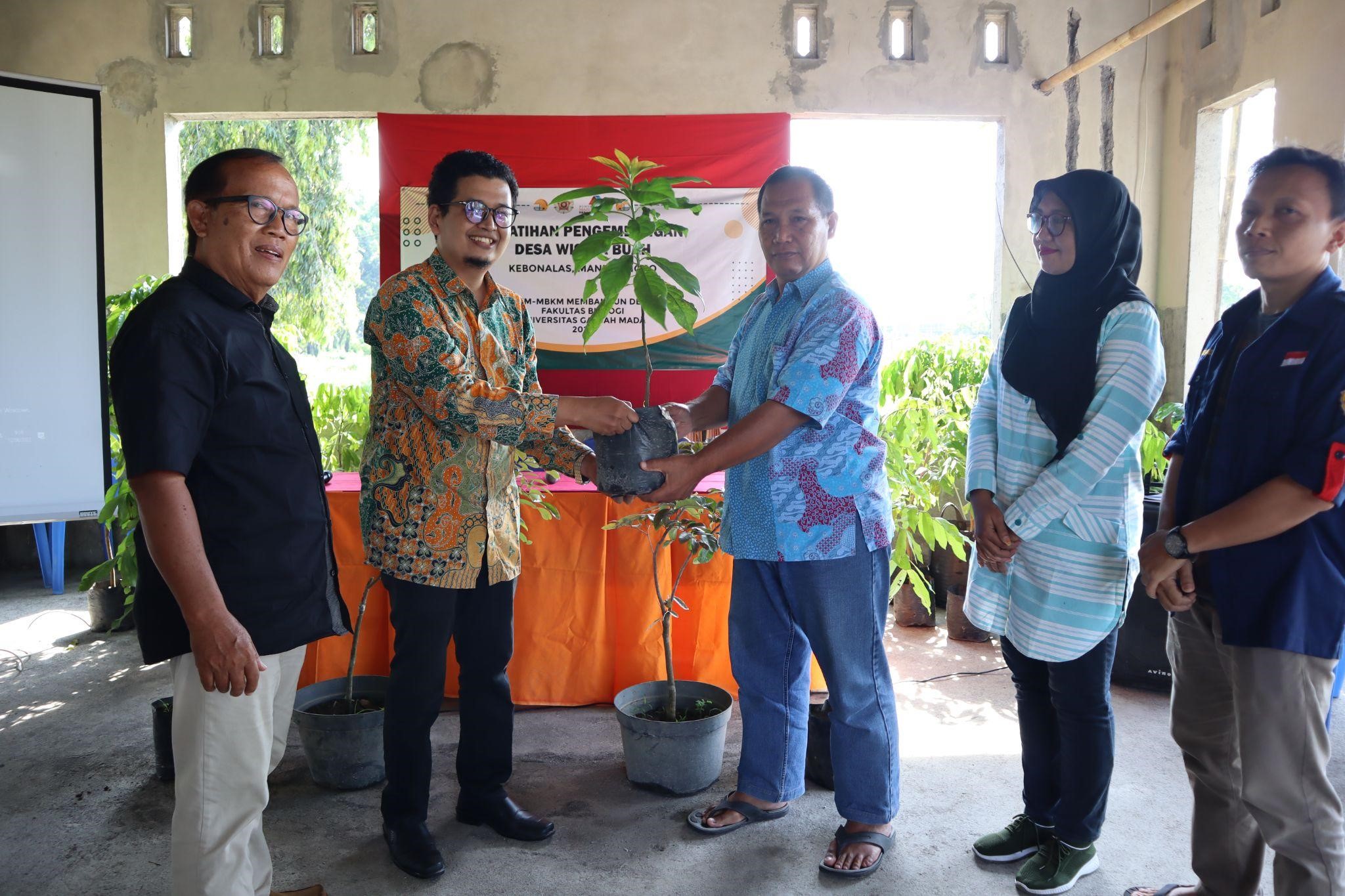The PkM-MBKM team of the Faculty of Biology, UGM, chaired by Mr. Sukirno, S.Si., M.Sc., Ph.D. with four student members, namely Amelia Rifki Alifiah, Fatika Soraya, Tiara Rachma Jatiningtyas, and Qonita Fillah, on Sunday, June 12, 2022, held a Training for the Development of Fruit Garden for Tourism in Kebonalas Village, Manisrenggo, Klaten. This event is one of a series of MBKM programs in to develop Fruit Garden in Kebonalas. This activity took place at the RW Kebonalas Village Hall at 09.00 s.d. 12.30 WIB and was attended by more than 20 participants consisting of representatives from various village components in Manisrenggo District. At this event, there was socialization and training as well as practical training by the village community to build independent fertilizer production with Mr. Sukirno, S.Si., M.Sc., Ph.D. as the speaker and fruit plant propagation techniques with Mr. Yousuf Sulaiman, S.IP. as the speaker.
The series of training events began with the symbolic handing over of fruit plants from the community service team to the Kebonalas Village. Meanwhile, the core activities of this training include the presentation of material on the production of liquid organic fertilizer (POC) by Mr. Sukirno, S.Si., M.Sc., Ph.D. This training aims at utilizing household organic waste into fertilizer products at household scale that can support the agricultural sector and land use in Kebonalas Village. “Why do we have to produce our own fertilizer? Because most of our crop production mainly relies on commercial fertilizers, which shouldn’t be the case. In the past, fertilizers may not need to be applied too often, but now every plant must be given fertilizer to optimize growth and product yields from these plants.” said Mr. Sukirno in his presentation session. He hopes that this training will stimulate the residents of Kebonalas Village to be able to produce fertilizer independently.
The residents of Kebonalas Village showed their enthusiasm in this Fruit Tourism Village Development Training activity through active participation during practical sessions and interactive discussions at the end of the presentation. Under the guidance of Mr. Yousuf Sulaiman, S.IP., the villagers practiced how to properly graft avocado shoots, from selecting the parent plant, selecting the interest, cutting the stem and inserting the interest. In addition, residents also learned how to take care of plants after grafting, namely by protecting plants from rainwater, especially in the injured part. Not only grafting on avocados, residents also practice grafting on longan plants. At the end of the presentation, Mr. Yousuf also shared his knowledge about the growth of longan plants so that they flower and bear fruit quickly. Mr. Yousuf gave tips to the residents of Kebonalas so that the plants being cared for can live and produce fruit as expected
“Fruit gardens are like humans, like children, there must be interaction, there must be strong bonds so that we understand how to fulfil the need of plants. They can’t talk, so we have to pay attention, visit or be seen often”.
We hope that the Independent Fertilizer Production and Plant Propagation Technique training event this time can provide benefits, especially for the participants who attended so that the knowledge conveyed can be applied in the future. Hopefully with this training, better cooperation and communication can be established between the village government, villagers, and the MBKM team of the Faculty of Biology UGM so that the Kebonalas Orchard Tourism Village can be realized. We would like to thank the Dean and Vice Dean for Research, Community Service and Alumni, Faculty of Biology UGM who have given permission, facilities, and funding for this activity. We do not forget to express our gratitude to all the Village Management, BUMDES, BPD, Kebonalas Village Youth Organizations, and other parties involved in this activity.




